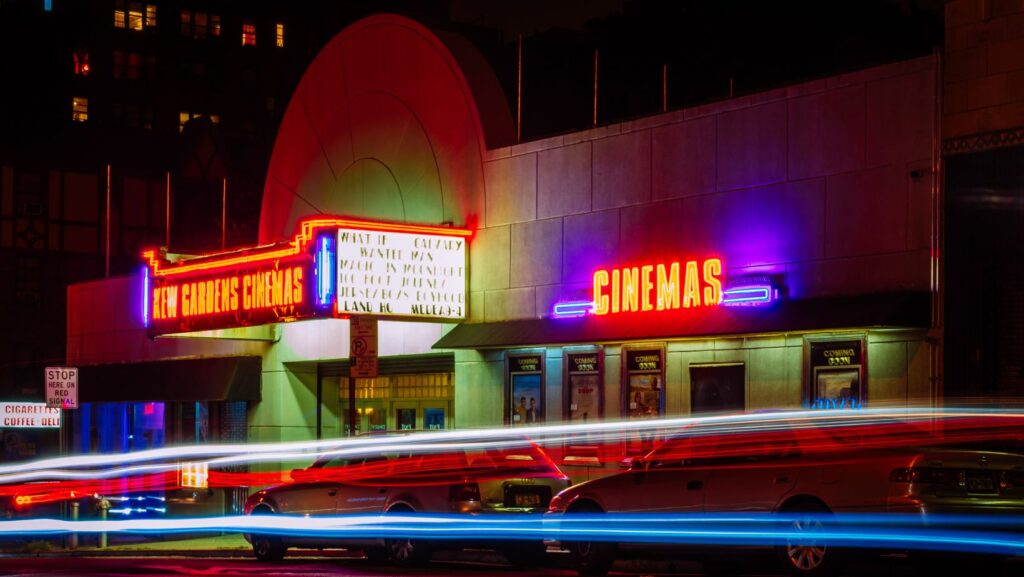Table of Contents
Step into the grandeur and spectacle of the cinematic world of movie epics. These larger-than-life films transport audiences to thin air, cultures, and worlds, captivating them with sweeping narratives and breathtaking visuals. From ancient historical events to futuristic space odysseys, movie epics have a way of immersing viewers in unforgettable adventures.

With their massive budgets, star-studded casts, and elaborate sets, movie epics aim how to trap a lasting impact on the audience, evoking a sense of awe and wonder.
Whether it’s the clash of armies on the battlefield or the emotional journey of a hero, these films are designed to mesmerize and inspire, showcasing the power of storytelling on a grand scale. Get ready to embark on a cinematic journey like no other as we delve into the realm of movie epics, where imagination knows no bounds, and the possibilities are endless.
The History of Movie Epics

Movie epics have a rich history that dates back to the early days of cinema. These grand productions have captivated audiences for decades with their larger-than-life storytelling and spectacular visuals. From legendary classics to modern blockbusters, the evolution of movie epics showcases the enduring appeal of epic tales on the big screen.
In the early 20th century, filmmakers began exploring epic storytelling, drawing inspiration from historical events and mythological tales. Silent films like “Intolerance” (1916) by D.W. Griffith laid the foundation for the epic genre, featuring elaborate sets and epic narratives that set the stage for future cinematic masterpieces.
Golden Age of Epics
The 1950s and 1960s marked the golden age of movie epics, with iconic films like “Ben-Hur” (1959) and “Lawrence of Arabia” (1962) setting new standards for grandeur and scale in filmmaking. These epics not only entertained audiences but also earned critical acclaim, solidifying their place in cinematic history.
Modern Epics
In the contemporary film industry, modern epics continue to enthrall audiences with their blend of cutting-edge technology and compelling storytelling. Blockbusters like “Gladiator” (2000) and “The Lord of the Rings” trilogy redefine the epic genre for a new generation, showcasing the enduring popularity of epic narratives in cinema.
Cultural Impact
Movie epics have not only entertained audiences but also influenced popular culture and inspired future filmmakers. These larger-than-life films have shaped cinematic storytelling, pushing boundaries and expanding the possibilities of visual storytelling on the big screen.
Legacy and Future
As the legacy of movie epics continues to inspire filmmakers worldwide, the future of the genre remains bright. With advances in technology and storytelling techniques, audiences can expect even more spectacular and immersive cinematic experiences in the realm of movie epics.
Notable Movie Epic Productions
Historical Epics
- Historical epics transport viewers to pivotal moments in history, bringing to life legendary events and figures. Films like “Braveheart” and “Schindler’s List” are renowned for their accurate portrayals of historical events, making them both educational and entertaining.
Fantasy Epics
- Fantasy epics create immersive worlds filled with magic, mythical creatures, and epic battles between forces of good and evil. Blockbusters like “The Lord of the Rings” trilogy and “Harry Potter” series have garnered global acclaim for their imaginative storytelling and groundbreaking visual effects.
Biblical Epics
- Biblical epics draw inspiration from religious texts and depict iconic stories from the Bible with grandeur and reverence. Classics such as “The Ten Commandments” and “The Passion of the Christ” have left a lasting impact on audiences with their powerful narratives and epic scale.
War Epics
- War epics focus on epic conflicts and the human experiences within them, showcasing the heroism, sacrifice, and tragedy of warfare. Films like “Saving Private Ryan” and “Apocalypse Now” offer gripping portrayals of war’s brutal realities and its profound impact on individuals and societies.
Mythological Epics

- Mythological epics delve into ancient myths and legends, exploring the hero’s journey, divine interventions, and epic quests. Movies like “Clash of the Titans” and “300” reinterpret mythological tales with modern sensibilities, captivating audiences with their larger-than-life characters and epic adventures.
- Science fiction epics transport viewers to futuristic worlds, exploring advanced technology, extraterrestrial life, and existential dilemmas. Films like “Star Wars” and “Blade Runner” have redefined the sci-fi genre, blending epic storytelling with groundbreaking visuals and philosophical themes.




